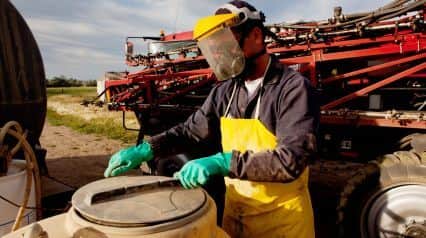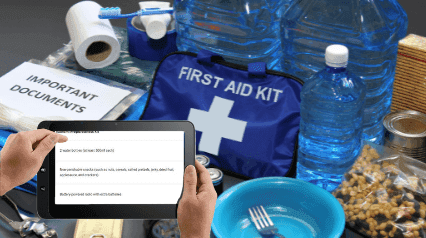5 Farm Safety Tips to Protect Yourself in the Field
Farm safety is crucial in preventing accidents, injuries, and risks in the field. Below, find five crucial farm safety tips to keep in mind whenever working on a farm

Published 6 May 2024
Article by
4 min read
What is Farm Safety and Why is it Important?
Before anything, it’s important to discuss what farm safety is. These are simply the measures and controls that you put in place to protect workers when they’re working on the field. This is done to reduce the dangers and risks to your property, employees, and other assets. That way, your business is protected from financial risks and dangerous accidents.
5 Farm Safety Tips for Field Workers
It’s critical to practice farm safety in the field. That said, it’s also important for each organization to tailor their safety program to their specific needs. To help you out, below are five different farm safety tips that are a huge help to organizations building a safety program:
1. Conduct Safety Training Regularly
Improve your EHS Management
Cultivate a safe working environment and streamline compliance with our EHS solutions.
2. Maintain Farm Equipment
Farm maintenance and safety go hand in hand. Maintaining equipment and ensuring that everything works properly and safely is vital in establishing a culture of safety on the farm. This is why organizations are encouraged to regularly inspect their farming and agricultural machinery.
Faulty and outdated equipment are major risks to worker safety. This is because these machines are more likely to fail when employees use them, which can result in costly and dangerous incidents in the field. This is especially true when dealing with heavier equipment such as tractors and plowing machines.
3. Handle Chemicals and Hazardous Products with Extra Care
It’s common for employees to handle various hazardous chemicals and products during farming activities. This is because part of the agricultural process involves giving certain chemicals to the plants and produce to shoo away bugs and other pests. While these pesticides and chemicals are effective at keeping pests at bay, they can be dangerous for humans.
This is why you must train all employees in properly handling chemical products. No employee should utilize these products without understanding the best practices to keep themselves safe. So, aside from training your employees, you must also make sure that only authorized and trained personnel handle chemicals and other hazardous products.
4. Perform Fire and Emergency Safety Briefings
You never know when an emergency may occur in your workplace. Emergencies can be unavoidable, regardless of the controls and safety procedures you have in place. However, what’s critical is that all your employees are trained in what to do in the event of emergencies such as fires, earthquakes, or other natural disasters.
To do this, you need to give them regular briefings on what to do in the event of an emergency. While these may sound like a drag for some employees, reminding them of emergency protocols on a regular basis will prove to be invaluable during an emergency as it ensures that all employees know exactly what to do during an emergency.
5. Invest in Alert Systems
Lastly, it’s best to install alert systems so that employees will be notified whenever there’s an emergency that they need to respond to. This could be in the form of massive alarms that can be heard throughout the farm or simple farm safety and maintenance platforms that can send notifications to your employee’s phones.
Understanding when there’s an emergency or incident is crucial for smooth and safe operations. So, make sure that your farm has an efficient and functional alert system in place so that your employees always stay on top of their personal safety.
Enhance Farm Safety with SafetyCulture
Why use SafetyCulture?
Platforms like SafetyCulture (formerly iAuditor) are great for organizations looking to enhance farm safety. The platform is equipped with features that streamline the safety process, from assisting in the training modules, all the way to managing and maintaining assets.
Here are some of the ways SafetyCulture can help your organization:
Never miss a class or essential training topic by creating safety training courses on the app that allow you to track employee progress
Ensure that your equipment is always safe and 100% functional through scheduled inspections with smart checklists , ensuring you never miss a step
Easily track all your equipment and materials in a centralized location with a digital asset management tool
Never miss an important issue or incident by reporting anything worth attention found during an inspection so teams can assign corrective actions right away
Keep workers informed and notified by sending mass notifications in the event of an emergency or to remind them of safety protocols or training
Find all the PPE you need for your farm from a reputable online marketplace .
Related articles
Environmental Safety
Safety

A Comprehensive Guide to Stormwater Pollution Prevention Best Management Practices (SWPPP BMP)
Learn about the types of best management practices for SWPP and the steps to effectively implement them in prevention plans.
Risk Assessment
Safety

The Ultimate Guide to Emergency Preparedness and Response
Learn how you can develop an effective emergency plan and stay one step ahead of natural disasters or other catastrophes.
Safety
Safety Management

Disaster Preparedness Plan
Learn more about the disaster preparedness plan, its importance, features, and example. Find out how a digital tool can help prepare against disasters.